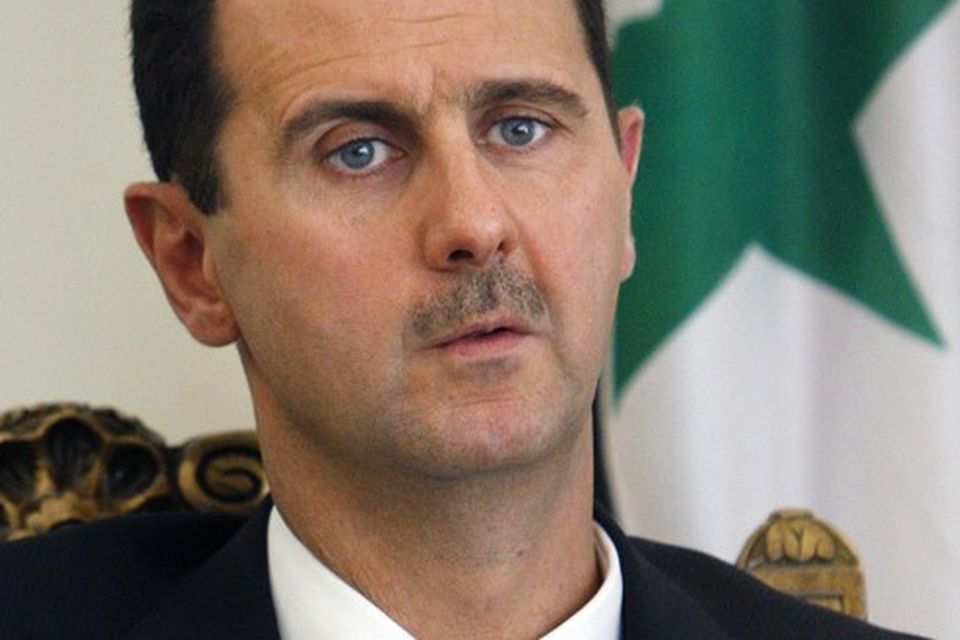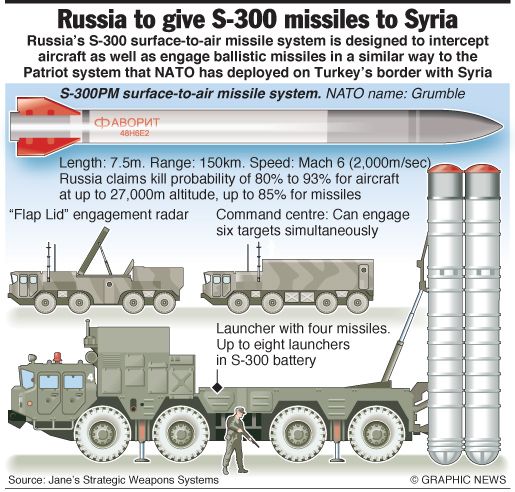Syria's President Bashar al-Assad: We now have Russia's advanced S-300 anti-aircraft missiles
Syrian president Bashar Assad said his country has received a shipment of Russian air defence missiles (AP)
Syria has received its first shipment of advanced S-300 anti-aircraft missiles from Russia
The announcement, reportedly made by president Bashar al-Assad to Lebanon's Hezbollah-owned television station, will further ramp up tensions in the region and could undermine efforts to hold UN peace talks in the region.
Assad apparently made the comments on Al-Manar TV, owned by the Lebanese militant group, during an exclusive interview expected to air later.
Israel has already said that Russia's plan to supply Syria with long-range S-300 air defence missiles would be treated as a threat and that it was prepared to use force to stop the delivery.
The move by Russia comes days after the European Union lifted an arms embargo on Syria, allowing its 27 member countries to send weapons to rebels fighting to overthrow Assad's regime, which itself prompted fears of an arms race in the Middle East.
Israel has already carried out several airstrikes on Syrian targets over the last few months that are believed to have destroyed weapons shipments headed for Hezbollah, but with the Russian missiles already in the Assad regime's possession, the Israeli air force's ability to attack could be limited.
Israel had been lobbying Moscow over the planned supply of S-300 air defence missiles, but on Tuesday Russia's deputy foreign minister, Sergei Ryabkov, said his government remained committed to the deal.
The S-300s have a range of up to 125 miles and can track and strike multiple targets simultaneously. Although Syria already possesses Russian-supplied air defences, the S-300s would bolster its armoury, allowing it to counter air strikes launched from foreign airspace, such as those believed to have been launched by Israel from its own and Lebanese airspace.
Although Monday's decision to lift the arms embargo paved the way for the arming of Syria's outgunned rebels, no country has committed to sending weapons and therefore it may have little impact on the conflict.
Britain and France spearheaded the campaign to lift the embargo, arguing that Europe's threat of arming the rebels would force Assad to negotiate.
Russia, however, had harshly criticised the decision, saying it undercuts international efforts to bring the opposing sides together at a peace conference.
May 29, 2013 -- Israel has warned it will respond if Russia delivers promised anti-aircraft missiles to its war-torn ally Syria. Moscow said it planned to deliver to Damascus the S-300 missiles -- designed to intercept aircraft or other missiles like Patriots NATO has already deployed on Turkey's border with Syria -- which were part of existing contracts. Graphic shows S-300 surface-to-air missile system known to NATO as Grumble.
Join the Belfast Telegraph WhatsApp channel
Stay up to date with some of Northern Ireland's biggest stories


